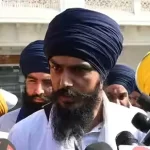WPL 2023 UP vs MI Women Highlights
WPL 2023 UP vs MI:On Saturday, the UP Warriorz ended the winning sequence of Harmanpreet Kaur’s Mumbai Indians by defeating them by five wickets thanks to their disciplined performance in the WPL 2023.
Sophie Ecclestone was the hero of the show for UPW, taking three wickets and scoring the game-winning runs.UP Warrriorz won the toss and elected to bowl first on the given day. The Mumbai Indians started slowly and lost the in-form Yastika Bhatia for only seven runs.
Nat Sciver-Brunt also failed to make an impression with the bat as MI were reduced to 39 for two in 7.2 overs due to the pressure exerted by the UPW bowlers.
Hayley Matthews was the next to be dismissed for 30 runs, leaving MI labouring at the halfway point. Harmanpreet Kaur steadied the ship for some time until she and Amelia Kerr were dismissed consecutively, leaving the league leaders floundering at 78 for five. Wong played a crucial 32 off 19 deliveries to help MI reach 127, but she did not receive sufficient support from the tail on this particular day. Eccelstone was the best bowler for UPW on the day, with figures of 3 for 15.
Harmanpreet, the captain of UP Warriorz, caught Devika Vaidya with just one run on the board, which was the worst possible start for the team.Alyssa Healy was the next to fall for UPW as MI appeared to be in the lead at the time. Similarly, Kiran Navgire failed to make an impression with the bat as UPW reached 27 for three in 6.1 overs.
Then, Tahlia McGrath and Grace Harris forged a crucial 45-run partnership, with the former being the aggressor at the time. McGrath scored 38 off of 25 deliveries before being dismissed by Amelia Kerr.
Harris then assumed responsibility and began to play freely, making the equation simple for UPW. However, Kerr returned to dismiss Harris for 39, creating an intriguing situation with UPW needing 23 runs off 26 deliveries.
After a close over from Ishaque, Eccelstone was able to score a boundary off Kerr’s over, bringing the equation to 13 runs off 12 overs as the final overs approached.After scoring eight more runs in the following over, five were required off the final six deliveries. Ecclestone missed the first two deliveries because Wong was exactly on target as tensions between the two camps grew.
Also Read | Novak Djokovic to miss Miami Open after Covid-19 vaccine exemption denied
Eccelstone then concluded the game with a six as UPW secured a crucial victory and MI’s winning run came to an end at five.




